Since November 30, the media has been full of horrific reports about 45 civilians killed by the “regime artillery” in Aleppo city.

 According to reports, at least 45 civilians were killed by artillery strikes in the militant-held part of aleppo city on November 30. The story also exploded in the social media with numerous posts blaming the Syrian government/
According to reports, at least 45 civilians were killed by artillery strikes in the militant-held part of aleppo city on November 30. The story also exploded in the social media with numerous posts blaming the Syrian government/However, the further developments showed that there were some gaps in the initial story promoted by the mainstream media and the Syrian “opposition”.
Videos and photos images of killed civilians show numerous large bags which probably contain their belongings. This means that they were most likely killed during an attempt to leave the militant-controlled area of Aleppo city;
Videos and photos from the scene don’t show pits or holes from artillery strikes.
This allowed some users and activists to suggest that the people were most likely killed by Aleppo militants that are well-known with their stiff opposition to anybody who attempts to leave the so-called “opposition-held area”.
Can #WhiteHelmets lies sink any lower?
These people were shot by "rebels" when they tried to flee from E Aleppo NOT killed by Syria's army
You said that this is shelling but there is no pits/holes in streets also we can see the bags near the corpses + @leloveluck
Such incidents have been many times documented by the Syrian media. Nonerheless, they are ignored in the mainstream coverage of the conflict.
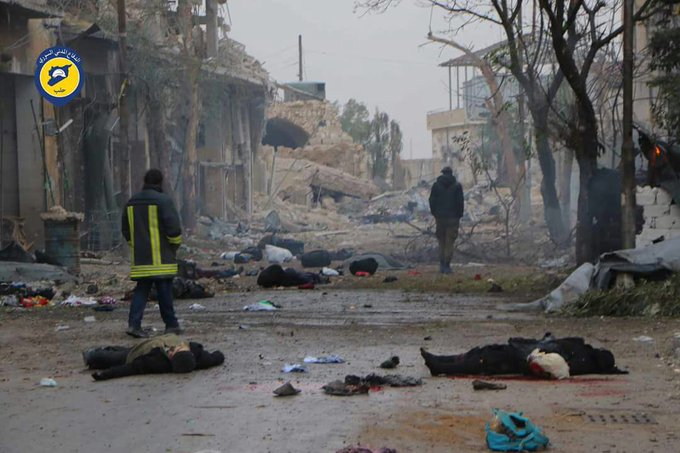
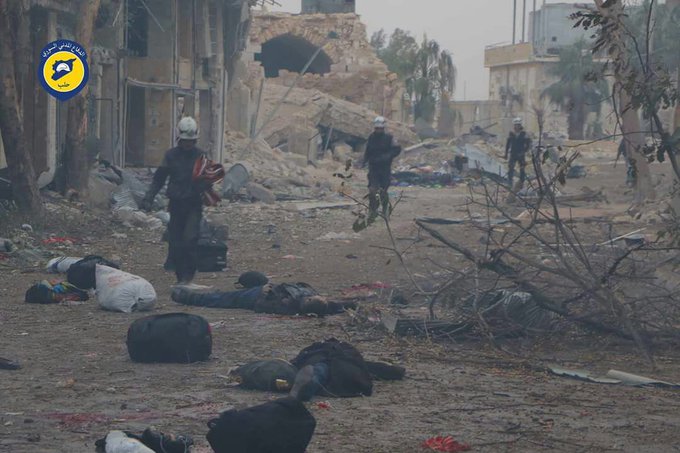

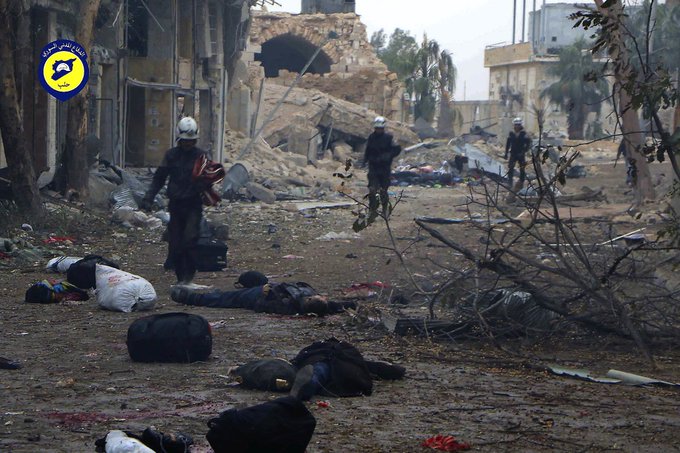
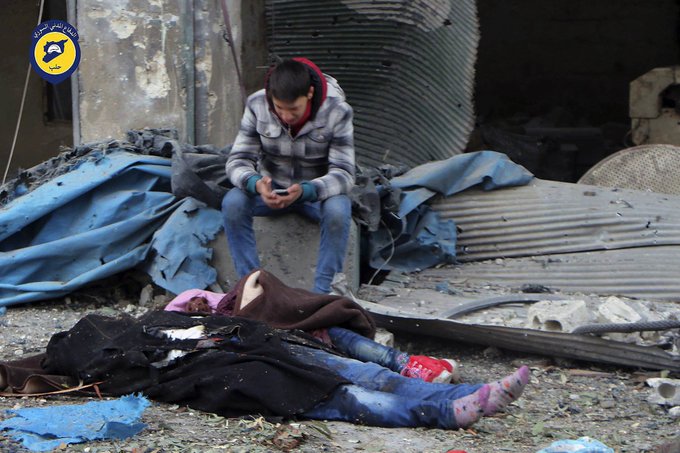
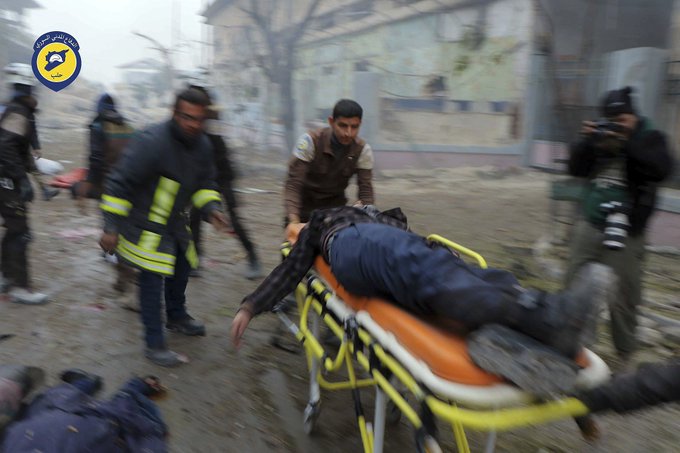

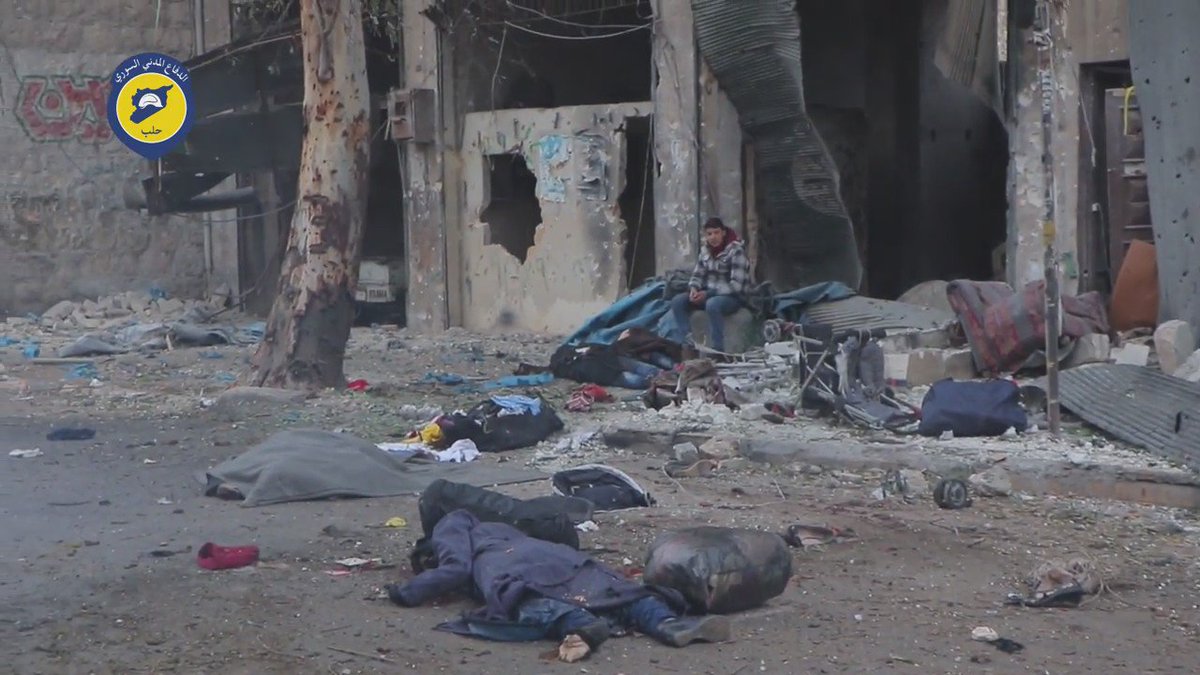




Comments
Post a Comment